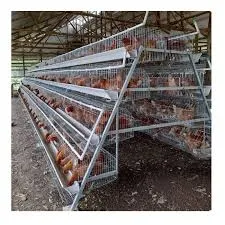commercial vacuum packaging machine
Dec . 03, 2024 18:11 Back to list
commercial vacuum packaging machine
Commercial Vacuum Packaging Machines Revolutionizing Food Preservation
In the fast-paced world of food production and distribution, maintaining the quality and freshness of products is paramount. One of the most effective solutions to this challenge is the use of commercial vacuum packaging machines. These specialized devices have revolutionized the way food is preserved, offering a myriad of benefits that extend beyond mere shelf life extension.
Understanding Vacuum Packaging
Vacuum packaging involves the removal of air from a package prior to sealing. This process significantly reduces the amount of oxygen in contact with the food, which is a key factor in the growth of bacteria and mold. By creating a vacuum-sealed environment, these machines help in preserving the nutritious qualities and flavors of food products, making them more appealing to consumers.
Benefits of Commercial Vacuum Packaging Machines
1. Extended Shelf Life One of the most significant advantages of using vacuum packaging technology is the extension of shelf life. Products can last up to five times longer when vacuum-sealed compared to traditional packaging methods. This is particularly vital for perishable items like meat, fish, and dairy products.
2. Reduced Food Wastage In the food industry, minimizing waste is crucial for both economic and environmental reasons. Vacuum packaging reduces spoilage by keeping food fresh for a longer period. As a result, businesses can better manage inventory levels, reduce losses, and improve profitability.
3. Enhanced Food Quality Air exposure can lead to oxidation, affecting the taste, color, and texture of food. Vacuum packaging significantly minimizes this exposure, ensuring that products maintain their original quality. This is especially important for gourmet and high-end food products that depend on their presentation and taste.
commercial vacuum packaging machine

4. Cost-Effective While the initial investment in a commercial vacuum packaging machine may seem substantial, it proves to be cost-effective in the long run. The savings from reduced food spoilage, decreased waste, and extended shelf life often offset the cost of the equipment. Moreover, many businesses find they can charge a premium for vacuum-sealed products.
5. Versatility Commercial vacuum packaging machines come in various sizes and types, catering to different business needs. From small, countertop models ideal for cafes or restaurants to large, industrial units suited for factories, businesses can choose machinery that fits seamlessly into their operations.
6. Improved Storage Efficiency Vacuum-sealed items take up less space due to the lack of air in the packaging. This efficiency helps businesses optimize storage space, leading to better organization and easier management of inventory.
7. Ready for Sous Vide Cooking Vacuum packaging is essential for sous vide cooking, a popular culinary technique where food is cooked in a temperature-controlled water bath. This method enhances flavor and tenderness while ensuring consistent results, making vacuum packaging machines indispensable in modern kitchens.
The Future of Vacuum Packaging
As consumer preferences shift towards fresher, healthier, and more convenient food options, the demand for vacuum packaging is only expected to grow. Innovations in technology have led to the development of smarter machines equipped with advanced sensors and software that can optimize the packaging process. This ensures the maintenance of quality while streamlining operations for businesses.
Moreover, as environmental concerns continue to rise, vacuum packaging manufacturers are increasingly exploring sustainable materials and practices to reduce their ecological impact. This trend not only aligns with consumer expectations but also positions companies as responsible industry leaders.
In conclusion, commercial vacuum packaging machines are essential tools in the food industry today. They offer numerous benefits, from extending shelf life and reducing waste to improving food quality and storage efficiency. As the market continues to evolve, these machines will play a critical role in meeting consumer demands for fresh, high-quality, and safe food products, while also contributing to the sustainability efforts of businesses worldwide.
-
Automatic Feeding Line System-Pan Feeder Nipple Drinker|Anping County Yize Metal Products Co., Ltd.
NewsJul.29,2025
-
Hot Sale 24 & 18 Door Rabbit Cages - Premium Breeding Solutions
NewsJul.25,2025
-
Automatic Feeding Line System Pan Feeder Nipple Drinker - Anping County Yize Metal Products Co., Ltd.
NewsJul.21,2025
-
Automatic Feeding Line System Pan Feeder Nipple Drinker - Anping County Yize Metal Products Co., Ltd.
NewsJul.21,2025
-
Automatic Feeding Line System - Anping Yize | Precision & Nipple
NewsJul.21,2025
-
Automatic Feeding Line System - Anping Yize | Precision & Nipple
NewsJul.21,2025






